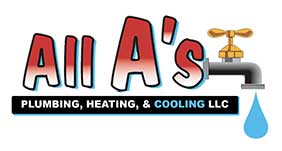Is Your Home Making You Sick? Factors Influencing Indoor Air Quality
The latest data shows that air pollution is one of the leading risk factors for death worldwide.
If you want to improve indoor air quality in your home, you are not alone. Homeowners don’t want to wait until major problems arise to address poor indoor air quality.
Below are some factors that contribute to indoor air quality. Read on for fresh tips on refreshing your indoor space!
Unusual Smells

Unusual smells, particularly those that offend, can indicate poor indoor air quality. Your nose is designed to detect mold, allergens, and other unusual chemicals present in your home.
If you notice a stale, musty smell like that of dirty socks, you might have a mold problem.
Mold occurs when excess moisture builds up. You are more susceptible to mold growth if you live in a humid climate. Even in drier climates, a leaky pipe or clogged drain can cause the dirty sock smell in an otherwise clean home.
A dehumidifier can filter out muggy or stale air and freshen up the feel of your home.
Another smell to look out for is gas. Your gas company likely adds a noticeable odor to the gas that runs through your line. It typically smells like rotten eggs.
If you ever smell gas, follow your gas or utility’s guidelines. You will want to leave the home immediately to prevent suffocation. Snuff out any open flames that could ignite the gas.
A carbon monoxide detector can detect gas leaks before you actively notice any bad smells.
Health Problems
Do you notice yourself becoming ill more often than in past years? Do you feel better after you leave the house or worse when you enter the house?
Your health issues may be due to indoor air pollutants.
Indoor pollutants like pollen, mold, dust mites, and animal dander can cause allergic reactions. You may also notice eye irritation, dizziness or fatigue, constant headaches or sinus issues, or general respiratory issues when breathing in pollutants.
Improving indoor air quality starts with identifying the cause of your health problems. Indoor air quality testing can determine which pollutants worsen your symptoms.
Instead of relying on air fresheners or harmful cleaning products with volatile organic compounds, you may want to use natural cleaning products.
How can you improve indoor air quality in the long run? Regular maintenance can ensure that your HVAC system effectively cleans and distributes air throughout your home.
Pests In Your Home
You don’t need to hear of the horrors of pest-infested homes to know why people dislike pests. Our brains register pests as disgusting to help protect us from diseases and other health risks they bring into the home.
Your brain is right to make you jump at the sight of pests- critters like dust mites, mice or rats, roaches, and other pests are a sure sign of poor indoor air quality. Dust mites indicate layers of settled dust around the home. Silverfish indicate excess moisture.
If you see pests or hear strange noises coming from your ducts, have a professional come out and inspect your HVAC system.
The Bottom Line
Do you have an unusual smell in your home? Do you suspect there may be pests? Don’t hesitate to call now before the situation gets worse. Proactive efforts to improve indoor air quality will give you peace of mind and you will not be subjected to unhealthy indoor air quality conditions.
Contact us to set up an appointment to address all of your plumbing and heating needs. You can breathe a sigh of relief knowing that your HVAC system (and your family) is in good hands!



Recent Comments